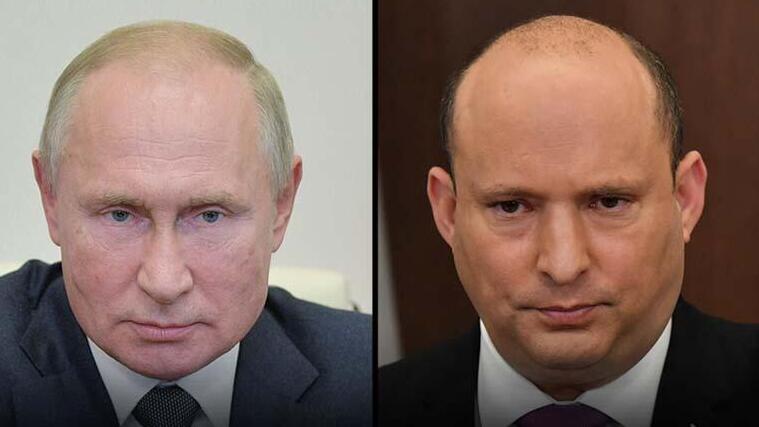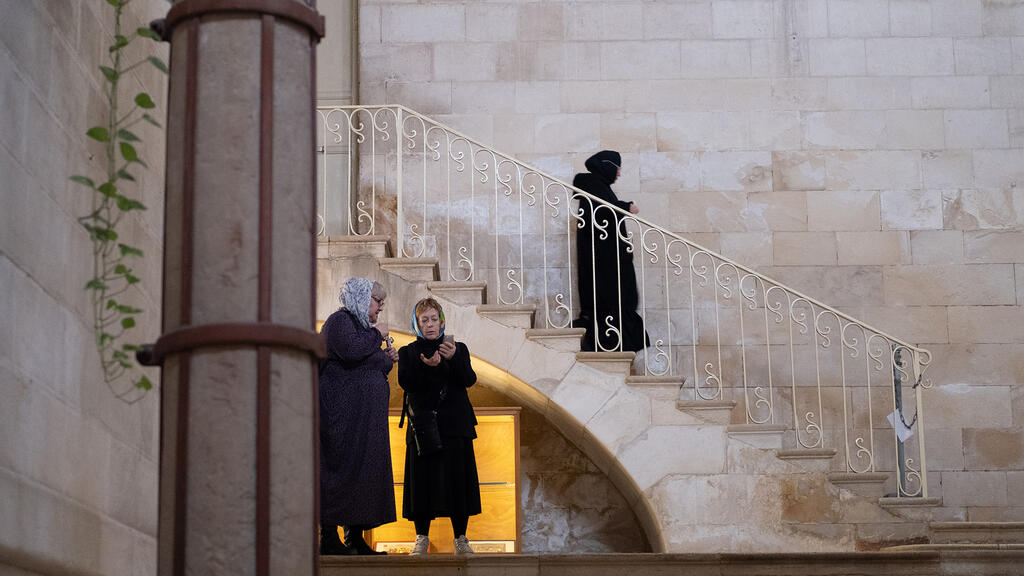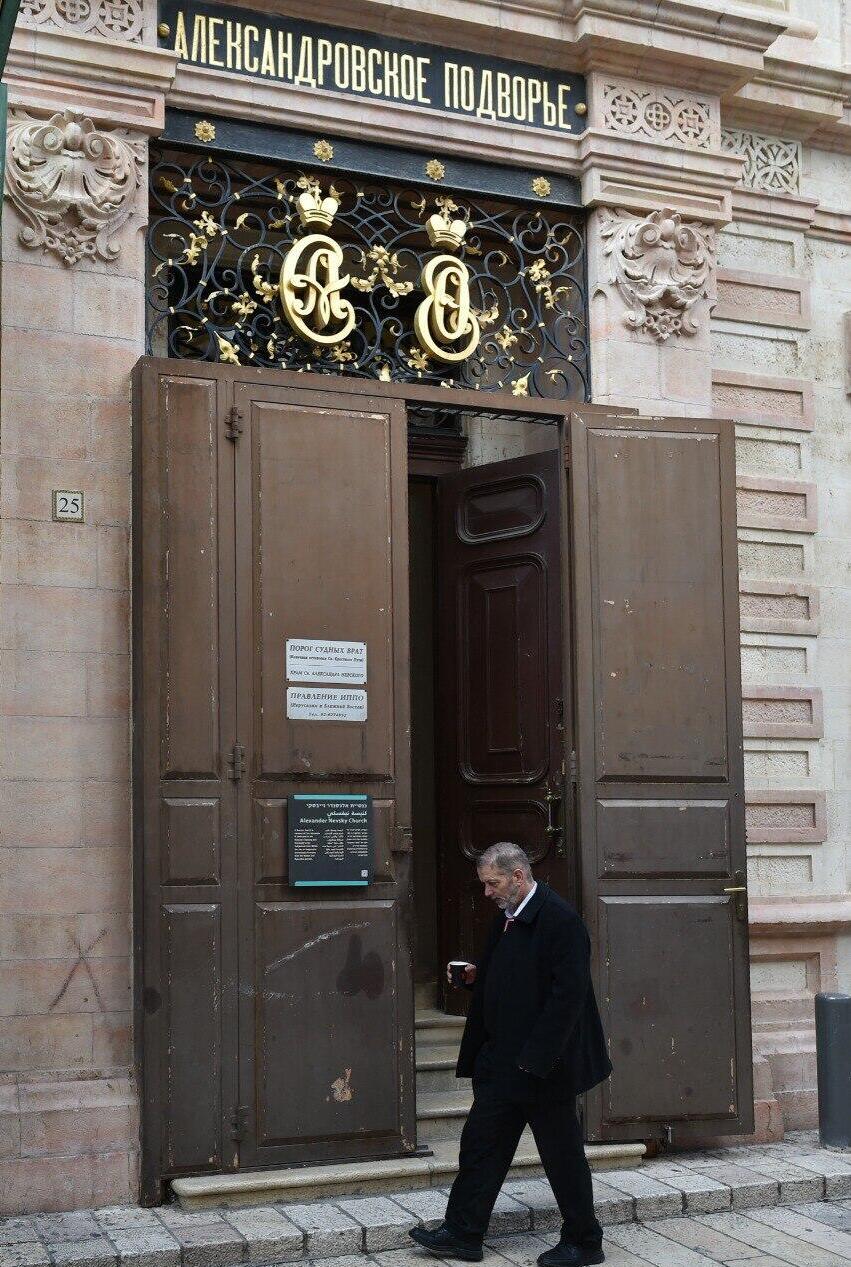Getting your Trinity Audio player ready...
The transfer of Jerusalem’s contested Alexander Nevsky Church into Russian hands is crucial for Russia-Israel relations, the Kremlin said on Tuesday.
"We expect the Israeli side to provide the necessary assistance for the transfer of the compound to Russia,” said Kremlin spokesman Dmitry Peskov in regards to the church, promised to Russia by former Prime Minister Benjamin Netanyahu as part of a deal meant to secure the release of Naama Issachar, who was imprisoned in Moscow in 2019 for possession of cannabis on Russian soil.
3 View gallery


Russian President Vladimir Putin, Prime Minister Naftali Bennett
(Photo; Reuters, Yoav Dudkevitch)
“This issue has been on the top of the agenda vis-à-vis Russia-Israel relations for a long time. We expect the Israeli leadership to provide all the required assistance to complete the transfer of ownership,” added Peskov, whose statement comes less than two days after Russian President Vladimir Putin reportedly sent a pressing letter on the issue to Prime Minister Naftali Bennett.
Putin's letter — sent amid somewhat strained relations between the two countries, partly due to Israel’s support of the UN General Assembly's decision to suspend the Russian Federation from the UN Human Rights Council for its alleged war crimes in Ukraine — was brought to public attention by Sergei Stepashin, former Russian prime minister and head of the association in charge of Russian assets in the Middle East.
Stepashin, amid his visit to Israel, criticized Jerusalem for stalling on the Alexander Nevsky Church dispute due to the war in Ukraine.
"Now we are fighting for the return of the compound, and it is very difficult: We were almost there, we worked for five years, we found all the historical documents, but the situation with Ukraine occurred, and Israel behaved as it often does — playing both sides, playing ping pong with everyone,” the Russian diplomat said.
The Alexander Nevsky Church, also known as the Cathedral of the Holy Trinity, is a significant asset of the Russian Orthodox Church in Jerusalem, located in the heart of the capital's Christian Quarter.
The land on which the compound stands was originally purchased from the Ottoman Empire at the end of the 19th century and "the glorious Russian Kingdom" — a name for the Russian Empire that no longer exists today — was registered as its rightful owner. Regardless, Moscow requested in 2017 that Israel recognize the Ottoman designation of the site.
Shortly after offering Putin the Alexander Nevsky Church in exchange for Issachar's release, Netanyahu decided that the dispute over ownership of the Christian landmark could not be resolved in a court of law due to its religious sensitivity. Shortly afterward, Israel's Land Registry Commissioner registered the Russian government as the owner of the landmark.
However, under the Bennett administration, the ruling was handed back to the Supreme Court, which placed the final ruling on hold. A committee was set up in 2021 to determine the landmark's ownership, but it had not yet convened.



